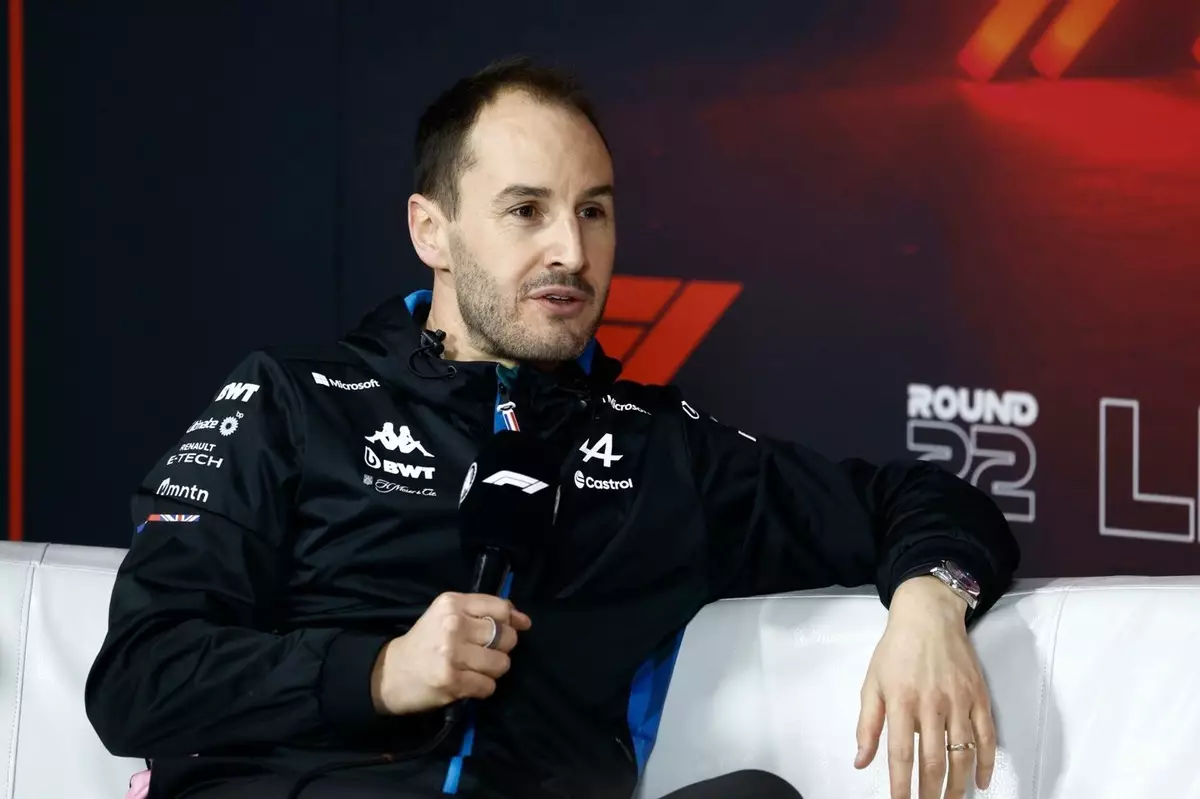The Alpine Formula 1 team has faced significant hurdles in the 2024 season, marked by an underwhelming performance in the first half. Entrusted with re-establishing stability, team boss Oliver Oakes and advisor Flavio Briatore were brought on board by Renault’s CEO, Luca de Meo. This strategic move was aimed at reversing the team’s fortunes and paving the way for improvement. The tumultuous start of the season prompted the team’s management to make crucial decisions regarding staffing, operations, and overall direction.
One of the pivotal changes implemented under Oakes’s leadership was a targeted reduction in personnel at the Enstone facility. The team downsized from over 1,100 employees to approximately 900, reflecting a focused effort on streamlining operations. In such a competitive field as Formula 1, where efficiency is paramount due to strict budget caps, this decision was undoubtedly a calculated risk. Oakes emphasized the necessity of reallocating resources effectively, stating, “You’ve got to make sure you’re putting resources in the right area.” This shift toward efficiency was critical as the team sought clarity amid the complexities of F1 racing.
A significant driving force behind Alpine’s resurgence has been the technical guidance provided by new technical director David Sanchez. Under his stewardship, the team’s performance began to improve, which Oakes viewed as a validation of their restructuring efforts. This aligns with the fundamental ethos Oakes instilled upon his arrival: the priority of developing a competitive racing car. Oakes’s leadership helps foster a culture focused on the end goal of racing success, distancing the team from distractions that might divert attention from performance enhancement.
While shedding staff may seem counterintuitive, the reduction was coupled with substantial investments in the team’s infrastructure. Oakes highlighted advancements such as the acquisition of a new simulator and upgraded testing facilities—essential components in a modern F1 team’s arsenal. These enhancements signify not only a commitment to building a competitive edge but also illustrate the broader investment narrative that is critical in F1. Oakes remarked, “There has been a lot of investment in the past few years,” referring to the support and commitment shown by the Renault group.
The Enstone factory boasts a rich history in F1, an advantage that can be leveraged in the context of innovation and performance refinement. However, as the competition heats up, adapting to the changing landscape of Formula 1 has become increasingly important. Oakes acknowledged the complexity of managing legacy technology while pursuing new competitive advantages, stating, “We’ve got the right amount of resources there.” It is evident that the historical significance of Enstone must harmonize with contemporary strategies to ensure long-term success.
Looking ahead, Oakes remains optimistic about the Alpine team’s trajectory despite avoiding commitment to a specific timeline for advancement. The confidence articulated by Oakes suggests that with the right people and the necessary resources, the team can reclaim its position in the midfield and ultimately challenge for top spots. He elaborated, “The main resource today is good people, and we’ve got a lot of great people there,” reinforcing that personnel will be crucial in navigating future challenges.
Alpine’s journey through the 2024 season encapsulates a transformative period. The thoughtful reshaping of their operations, the embracing of technological advancements, and the focus on team culture are laying the groundwork for a brighter future. While the road ahead remains challenging, the proactive measures taken by Oakes and his team signal a fledgling renaissance for Alpine Racing in Formula 1, highlighting resilience and adaptability at the core of their strategy. As the season progresses, it will be intriguing to see how far these changes take the team on its journey back to competitiveness.


Leave a Reply